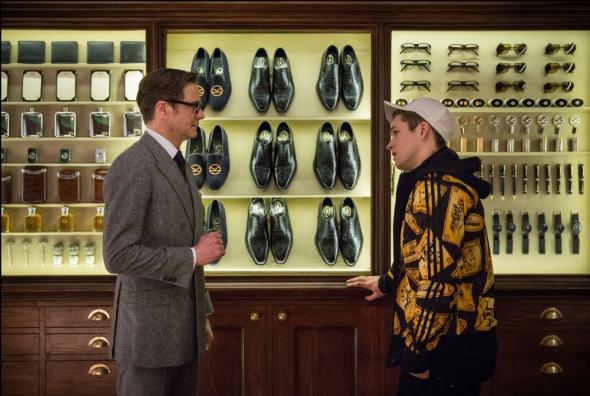More than a month after its premiere, Kingsman: The Secret Service is still third at the box office. The spy movie spoof starring Colin Firth and Samuel L. Jackson has cracked the $100 million mark in the domestic box office, and the enthusiastic reviews have continued rolling in. The movie’s staying power suggests a trend that the execs behind the film might not have expected: It’s reeling in a surprisingly large female audience, especially considering it was originally touted as counterprogramming for Fifty Shades of Grey.
In February, Twentieth Century Fox Distribution President Chris Aronson plainly told The Wrap that their strategy was “gunning for two quadrants”: younger and older men. Which is to say they didn’t really care if women showed up; they knew their audience, and they were catering to it. But then women comprised just under half of the audience at opening weekend. This isn’t the first time female audiences showed up to a comic book movie (the film is based on a comic book series called The Secret Service by Mark Millar and Dave Gibbons)—according to CinemaBlend, Marvel’s Guardians of the Galaxy had a 44 percent female audience last summer. The two films both include badass female characters and a cast with built-in fans, but they clearly have many differences. So how did a spy movie spoof featuring Colin Firth and a notably ill-conceived anal sex joke turn out to be such a hit across the board?
Part of the appeal of Kingsman is that it is as goofy as it is irreverent and self-aware. It’s been a hit not just across genders, but also across ages, because it offers something for so many different demographics. (The movie got an A CinemaScore with viewers under 25, an A- with viewers between 25 and 34, and a B+ overall, according to Deadline.) For those who would normally not be enamored with a “comic book movie,” there is a cast with serious gravitas: Colin Firth, Samuel L. Jackson and Michael Caine. Both Firth and Jackson’s roles subvert their personas—Firth plays the lethal badass, spy extraordinaire Harry Hart, while Jackson plays Richmond Valentine, a dayglow-sweatsuit-clad supervillain with a lisp, who largely relies on his female partner (played by Sofia Boutella) to do his dirty work for him because he’s too squeamish.
The movie’s biggest strength is how it manages to make everyone feel like they’re privy to the same inside joke. At one point, Valentine and Hart are sharing a nice nemesis dinner of McDonald’s in his lavish mansion when he asks, “Do you like spy movies, Mr. DeVille?” (Hart is still using an assumed identity.) Hart replies, “Nowadays, they’re all a little serious for my taste. But the old ones… marvelous. Give me a far-fetched theatrical plot any day.” Heh, heh. Nudge, nudge.
The movie’s success shows that Kingsman has widespread, generalized appeal, despite marketers’ straightforward pandering to male audiences. (Except kids, because oh man, that church scene is a Tarantino-level bloodbath.) But this should be a lesson for movie execs: Female audiences want their Fifty Shades and their Kingsman, too.
